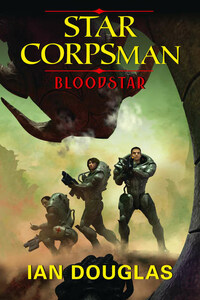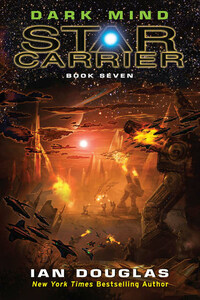The Qesh were solidly in control.
There were armed guards standing at several busy intersections, and small groups of them patrolled the corridors like cops on a beat. The humans we saw watched the patrolling Qesh with expressions ranging from boredom to terror; no one tried to talk with the invaders, and for their part, the invaders didnât seem predisposed to interfere with the human crowd.
About ten minutes passed before we started getting signal breakup, and then the image dissolved into pixels and winked out. The transmission, shifting around randomly across tens of thousands of frequencies each second, probably couldnât be monitored by the Qesh, but it could be blocked, by tens of meters of solid rock if nothing else. What we received before that happened, though, had been useful.
And disturbing. If the humans were cooperating with the Qesh, had they already given the invaders access to their computer records?
Had the Qesh already learned the location of Earth?
And how could we find out if they had?
IâM JUST GLAD IâM NOT AFRAID OF HEIGHTS.
Well, at least not much.
Our Cutlass hit atmosphere at something like 8 kilometers per second, bleeding off velocity in a blaze of heat and ionization, the sharp deceleration clamping down on my chest like a boa constrictor with a really bad attitude. I hadnât been able to see much at that point, and most of my attention was focused simply on breathing.
But then the twelve-pack cut loose, and my insert pod went into free fall. I was thirty kilometers up, high enough that I could see the curve of the planet on my optical feed: a sharp-edged slice of gold-ocher at the horizon, with a deep, seemingly bottomless purple void directly below. We were skimming in toward the dawn with all of the aerodynamic efficiency of falling bricks. The Cutlass scratched a ruler-straight contrail through the black above our heads, scattering chaff to help conceal our drop from enemy radar and lidar assets on the ground.
The problem with a covert insertion is that the covert part is really, really hard to pull off. The bad guys can see you coming from the gods know how far away, and you tend to make a lot of noise, figuratively speaking, when you hit atmosphere.
But thatâs what the U.S. Marinesâand specifically Bravo Company, 1>st Battalion, the Black Wizardsâdo best.
âDeploying airfoil,â a womanâs voice, a very sexy womanâs voice, whispered in my head, âin three ⦠two ⦠one â¦â
Why do they make our AIs sound like walking wet dreams?
My insertion pod had been a blunt, dead-black bullet shape until now, three meters long and just barely wide enough to accommodate my combat-armored body. The shell began unfolding now, growing a set of sharply back angled delta wings. The air outside was still achingly thin, but the airfoil grabbed hold with a shock akin to slamming into a brick wall. Deceleration clamped down on me once moreâthat damned boa constrictor looking for breakfast againâthis time with a shuddering jolt that felt like my pod was shredding itself to bits.
The external sensor feeds didnât show anything wrong, nor did my in-head readout. I was dropping through twenty-two kilometers now, and everything was going strictly according to ⦠what the hell is that?
Red-gold ruggedness seemed to pop up directly ahead of me, looming, night-shrouded, belowâand huge, and I stifled a shrieking instant of sheer panic. It was the crest of Olympus Mons, the very highest, most easterly slopes catching the rays of the Martian dawn long before sunrise reaches the huge mountainâs base. That twenty-two kilometers, I realized with a shudder, was measured from the areodetic datum, the point that would mark sea level on Mars if the planet actually had seas.
Olympus Mons, the biggest volcano in the solar system, rises twenty-one kilometers from the datum, three times the elevation of Everest, on Earth, and fully twice the height of the volcano Mauna Kea as measured from the ocean floor. I was skimming across the six nested calderas at the summit now, the rocky crater floor a scant couple of kilometers beneath my fast-falling pod. The calderasâ interior deeps were still lost in midnight shadow, but the eastern escarpment, seemingly suspended in a mass of wispy white clouds, caught the light of the shrunken rising sun, and from my vantage point it looked like those vertical rock cliffs were about to scrape the nanomatrix from my podâs belly. In another moment, however, the escarpment was past, the 80-kilometer-wide caldera dropping behind with startling speed.










